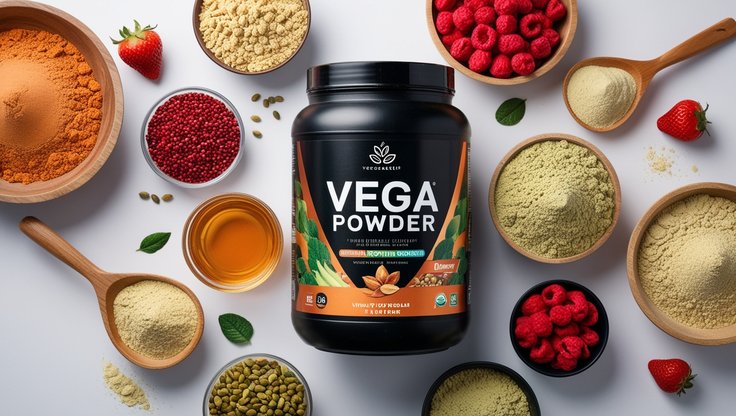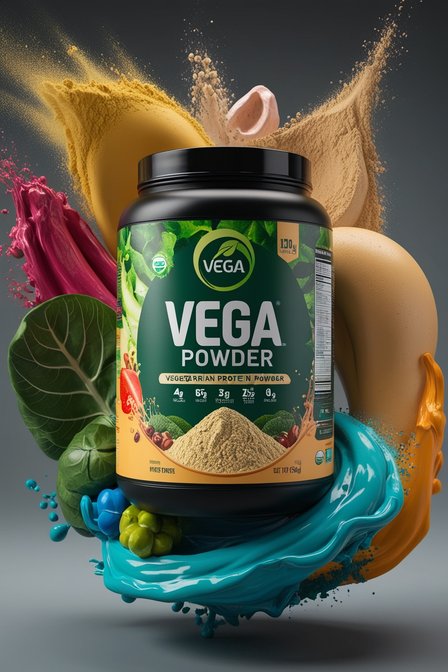The Rise of Vegan Protein
In recent years, the demand for vegan protein has skyrocketed. As more people adopt plant-based diets, the need for sustainable and ethical protein sources has become more pronounced. Vegan protein, derived from plants, offers a viable alternative to animal-based proteins, providing numerous health benefits while also being environmentally friendly. This article explores the different sources of vegan protein, their benefits, and how they compare to traditional animal proteins.
Health Benefits of Vegan Protein
One of the primary reasons individuals turn to vegan protein is for its health benefits. Plant-based proteins are typically lower in saturated fats and cholesterol compared to animal proteins, reducing the risk of heart disease and other chronic conditions. Additionally, vegan proteins are rich in fiber, aiding digestion and promoting a healthy gut microbiome. Research has shown that diets high in plant-based proteins can lower blood pressure, reduce the risk of type 2 diabetes, and contribute to weight loss.
Common Sources of Vegan Protein
There is a wide array of plant-based foods that are rich in protein. Legumes, such as lentils, chickpeas, and black beans, are excellent sources of protein and also provide essential vitamins and minerals. Nuts and seeds, including almonds, chia seeds, and hemp seeds, offer a high protein content along with healthy fats. Whole grains like quinoa, brown rice, and oats are also valuable sources of protein and fiber. Additionally, vegetables such as spinach, broccoli, and peas can contribute to daily protein intake.
Protein Quality and Bioavailability
One concern often raised about vegan protein is its quality and bioavailability. Protein quality is determined by the presence of essential amino acids, which are the building blocks of protein that the body cannot produce on its own. While most plant proteins are considered incomplete because they lack one or more essential amino acids, combining different plant proteins can provide a complete amino acid profile. For instance, consuming beans with rice ensures all essential amino acids are present. The bioavailability of vegan protein, which refers to how well the body can absorb and use the protein, is generally slightly lower than that of animal proteins. However, this can be mitigated by consuming a variety of protein sources and maintaining a balanced diet.
Vegan Protein Supplements
For those who find it challenging to meet their protein needs through food alone, vegan protein supplements are a convenient option. These supplements are typically made from sources like peas, brown rice, hemp, and soy. They come in various forms, including powders, bars, and ready-to-drink shakes. Vegan protein powders are especially popular among athletes and fitness enthusiasts, as they provide a quick and efficient way to boost protein intake. When choosing a vegan protein supplement, it's essential to look for products with minimal additives and artificial ingredients, ensuring a clean and natural protein source.
Environmental Impact of Vegan Protein
Another significant advantage of vegan protein is its lower environmental impact. Producing plant-based protein requires fewer resources, such as water and land, and generates less greenhouse gas emissions compared to animal farming. This makes vegan protein a more sustainable option for feeding the growing global population. As concerns about climate change and environmental degradation continue to rise, shifting towards plant-based proteins can play a crucial role in reducing our ecological footprint.
Vegan Protein and Athletic Performance
There is a common misconception that vegan diets cannot support athletic performance due to insufficient protein intake. However, many elite athletes have successfully transitioned to plant-based diets and continue to excel in their sports. Vegan protein provides all the necessary nutrients for muscle repair and growth, energy production, and overall performance. Athletes can obtain adequate protein by consuming a variety of plant-based foods and incorporating vegan protein supplements when needed. Studies have shown that a well-planned vegan diet can meet the protein needs of athletes and support optimal performance.
The Future of Vegan Protein
As the demand for vegan protein continues to grow, innovation in the food industry is driving the development of new and exciting products. From plant-based meat alternatives to protein-enriched snacks, the options for incorporating vegan protein into the diet are expanding rapidly. Companies are investing in research and technology to improve the taste, texture, and nutritional profile of vegan protein products. This progress is making it easier for individuals to adopt plant-based diets without compromising on their protein needs.
Addressing Common Myths about Vegan Protein
Despite its benefits, there are still several myths and misconceptions about vegan protein. One common myth is that plant-based proteins are inferior to animal proteins in terms of muscle building and recovery. However, numerous studies have debunked this, showing that vegan protein can effectively support muscle health. Another myth is that vegans cannot get enough protein without relying on supplements. While supplements can be helpful, a well-balanced vegan diet can provide adequate protein through whole foods. Educating the public about these misconceptions is crucial to promoting the adoption of vegan protein.
Integrating Vegan Protein into Daily Meals
Incorporating vegan protein into daily meals can be simple and enjoyable. For breakfast, options like smoothies with plant-based protein powder, oatmeal topped with nuts and seeds, or tofu scrambles are nutritious choices. Lunch and dinner can include dishes like quinoa salads, lentil soups, bean burritos, and stir-fries with tempeh or edamame. Snacking on hummus with vegetables, nut butter on whole-grain toast, or protein-rich energy balls can help meet daily protein requirements. Experimenting with different recipes and flavors can make the transition to vegan protein both easy and satisfying.
Conclusion
Vegan protein offers a myriad of benefits, from improving health and athletic performance to reducing environmental impact. With a variety of sources and supplements available, it's easier than ever to meet protein needs on a plant-based diet. As awareness and demand for vegan protein grow, the food industry will continue to innovate, providing more delicious and nutritious options for consumers. Embracing vegan protein is not only a step towards better health but also a commitment to a more sustainable and ethical food system.




